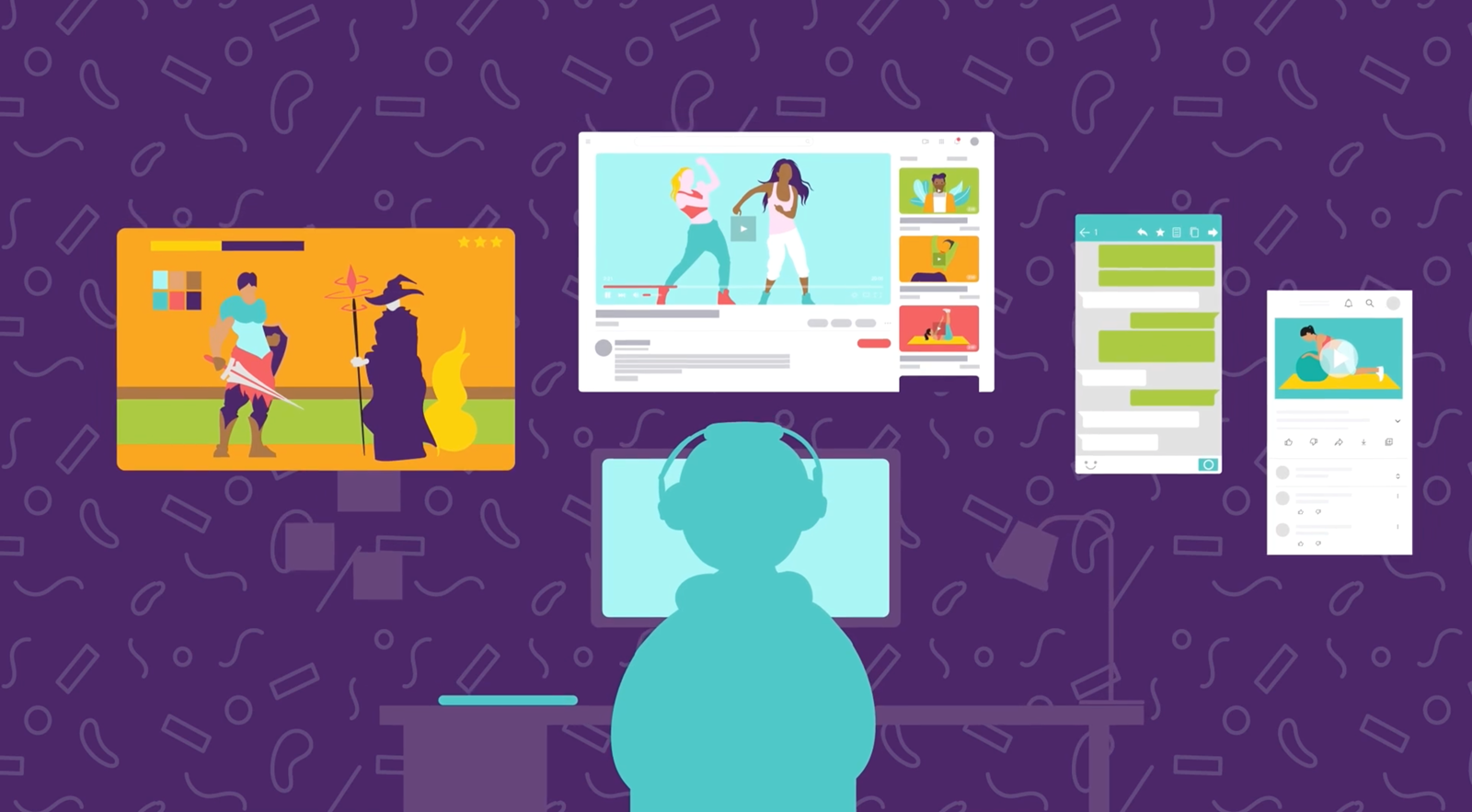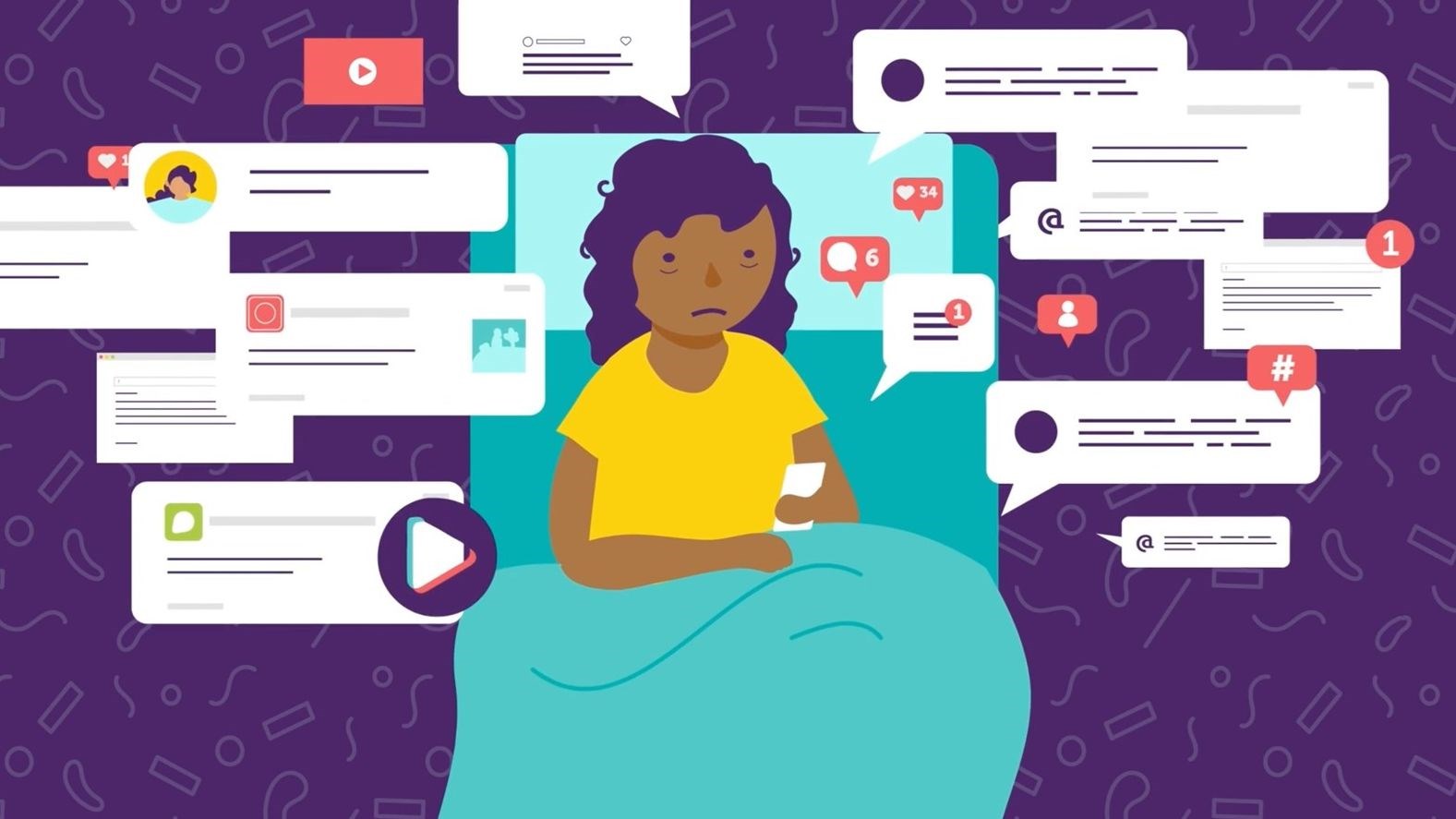Mental Health Matters: Digital stress & learning how to disconnect
Mental Health Matters is a series of Surrey Schools articles that highlights issues and challenges identified by our school counsellors and psychologists as ones commonly experienced by students of all ages. Read them all at surreyschools.ca/news.
Technology is a part of everyday life in 2023, but when screentime, a steady stream of notifications, the barrage of messages and constant connectivity become too much for someone, it can lead to what’s called ‘digital stress.’
The issue is something that can affect people of all ages, and for younger generations who have never lived in a world without smartphones and social media, it can be tough to recognize when all that digital input is affecting your well-being.
Daniel To, district principal for education services and specialty programs with Surrey Schools, says digital stress is an increasingly complex issue as young people grow up relying on technology for all sorts of daily interactions and connectedness. 
“This reliance can affect a person’s social and emotional well-being,” said To, noting that people who become too dependent on their devices can sometimes struggle with physical health as well.
Some common signs of reliant behaviour include people who tune out the world around them because they’re constantly checking their devices, those who stay up late on their phones endlessly scrolling social media when they should be sleeping, and others who reach for their device every few minutes despite not receiving a notification or prompt.
This ‘addictive’ behaviour can also lead to being stressed out about what is or is not happening on digital platforms such as an image or post not getting enough reactions from friends, or seeing posts about an event or activity they weren’t invited to.
The result, said To, is that some people feel like they have to be online and watching what’s going on at all times, worried they may miss something.
“For some, digital devices have become one of their main forms of communication and even preferred above in-person interactions,” he said. “People would rather text than call, FaceTime than visit or send emojis than write letters. We have entered the age of quick and instant, all of which can have a harmful effect on how we perceive the world around us.”
To remedy feelings of inadequacy, missing out or general malaise caused by digital interactions or the lack thereof, To recommends people, especially youth, get back to the basics of human interaction and activity.
“Take time to build intentional and personal relationships with people who are important to you, forgo the text in exchange for having a coffee,” he said. “Having lunch together is so much more engaging than a meeting over Zoom.
“We are only beginning to understand how this ‘new’ type of human interaction is affecting the brain and the social emotional well-being of people – and we need to be careful that we don’t lose the important nuances of positive human interactions in exchange for the comforts and ease of digital interactions.”
For more on Digital Stress, including ways to identify and mitigate it, the district has created two videos highlighting the topic, one for elementary aged students and another for intermediate/secondary aged students. Each video also has a corresponding teacher guide to support classroom discussions about the topic in an age-appropriate manner. There is also a parent guide to all the videos, with suggestions on questions to prompt conversations, as well as community resources if families need additional support.
 The Digital Stress video is also available in French, Punjabi, Mandarin and Arabic.
The Digital Stress video is also available in French, Punjabi, Mandarin and Arabic.
To see the rest of the video series, click here, or select the topic below:
- You Are Not Alone (Elementary)
- You Are Not Alone (Secondary)
- Healthy vs Unhealthy Stress (Elementary)
- Healthy vs Unhealthy Stress (Secondary)
- Coping with Stress & Anxiety (Elementary)
- Coping with Stress & Anxiety (Secondary)
- Health and Wellness (Elementary)
- Health and Wellness (Secondary)
- Healthy Relationships (Elementary)
- Healthy Relationships (Secondary)
- Navigating Life Changes (Elementary)
- Navigating Life Changes (Secondary)
- Body Image (Elementary)
- Body Image (Secondary)
These videos were developed in partnership with Fraser Health and the Ministry of Education and Child Care, which provided financial support for the project.


